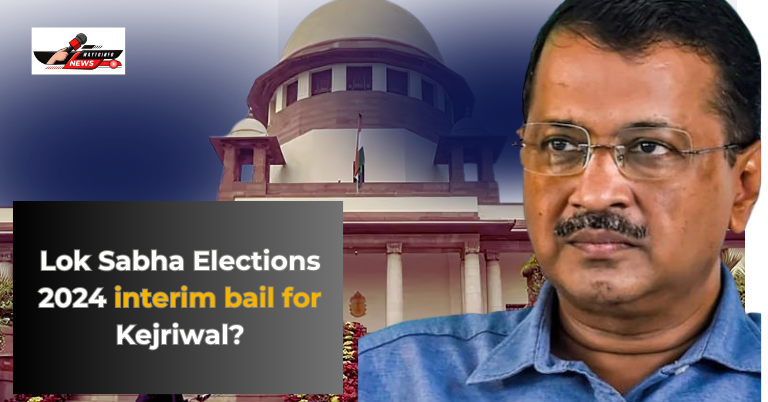Arvind Kejriwal: The Supreme Court, in today’s hearing, stated that it has not decided Delhi Chief Minister Arvind Kejriwal’s interim bail. It further announced that the matter will be revisited on May 7th.
In short
- Arvind Kejriwal’s interim bail will be decided by the Supreme Court on May 7.
- We must be open so that neither side is taken by surprise, the Supreme Court declares.
- Due to a liquor policy issue, Arvind Kejriwal has been detained at Delhi’s Tihar Jail since April 1.
On Friday, the Supreme Court suggested the possibility of granting interim bail to imprisoned Delhi Chief Minister Arvind Kejriwal, although it emphasized that no decision has been reached yet. The court directed the Enforcement Directorate (ED) to provide guidance on the feasibility of granting interim bail and the potential conditions to be imposed. These verbal remarks were made by a bench comprising Justices Sanjiv Khanna and Dipankar Dutta towards the conclusion of the hearing on Kejriwal’s plea challenging his arrest by the ED.
The bench stated, “This case might be prolonged. However, if it does extend, we might contemplate the issue of interim bail due to the elections.”
The bench instructed Additional Solicitor General SV Raju, representing the ED, to prepare for discussion on the matter of interim bail concerning the elections during the next hearing on Tuesday, May 7. They urged Raju to ensure appropriate instructions are obtained regarding this issue and the potential conditions that may be imposed, emphasizing the importance of being well-prepared to avoid any surprises. The bench then scheduled further proceedings for May 7.
Justice Khanna also inquired whether Kejriwal could still authorize his official documents, prompting the ASG to express concern that his statement might be misconstrued.
Justice Khanna remarked, That’s the challenge of conducting proceedings in an open court. He emphasized that the court has not made any commitment regarding whether bail will be granted or denied.
We are maintaining neutrality. We’ve been transparent about it. Please refrain from assuming any outcome,” Justice Khanna cautioned both parties.
Kejriwal’s arrest on March 21 was related to the Delhi excise policy case.
During the session, the bench questioned the ED, stating, “You have invoked section 70. Hence, according to your perspective, AAP is the main accused. There cannot be two primary accused for a single offense. He is not facing charges from the CBI. Although investigations were ongoing, he (Kejriwal) has not been formally charged.”
Raju clarified, There is no requirement for formal adjudication.
In response, Justice Khanna reiterated, If AAP is considered the primary accused and no adjudication proceedings have been initiated against AAP to date, can you still arrest Kejriwal?
ASG Raju replied, Confiscations can occur without adjudication, as per the provisions of the act.
Senior advocate Abhishek Manu Singhvi, representing Kejriwal, countered, Initially, all co-accused in my case remained silent. Then, suddenly, they changed their stance. Not every action of a political party can be attributed to its convenor, treasurer, and so on.
Singhvi questioned, What evidence connects Kejriwal with the allegations presented by the ED, other than his role as the convenor of AAP?
Consider if a company is implicated in a case. Can its Managing Director be arrested? Kejriwal cannot be arrested solely based on vicarious liability,” Singhvi argued before the bench.
In response, the bench clarified, Vicarious liability doesn’t operate in that manner. Every individual in a position of authority and responsibility can be subject to prosecution. Is there any indication in the grounds for belief that his arrest is related to Section 70 of the PMLA?
Singhvi countered, “Simply mentioning a company’s name does not justify the arrest of its Managing Director.”
Justice Khanna elaborated, Any individual holding overall authority within a company bears vicarious liability alongside the company. They must then demonstrate that any wrongdoing occurred without their knowledge.”
In response, Singhvi argued, Your consideration wasn’t about political parties; it was about business entities. It carries a commercial context. The association of individuals will adopt that context.”
Justice Khanna countered, A society falls under the purview of an association of individuals.
Singhvi referenced the ED’s response, stating, The ED alleges his involvement in kickback demands. However, there is no direct evidence of this. Moreover, this pertains to the Prevention of Corruption Act, not money laundering.
Also Read: Hamida Banu
The hearing concluded without resolution and is set to resume on May 7.

